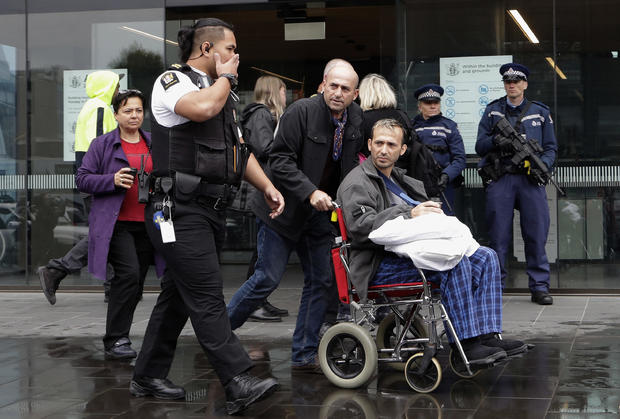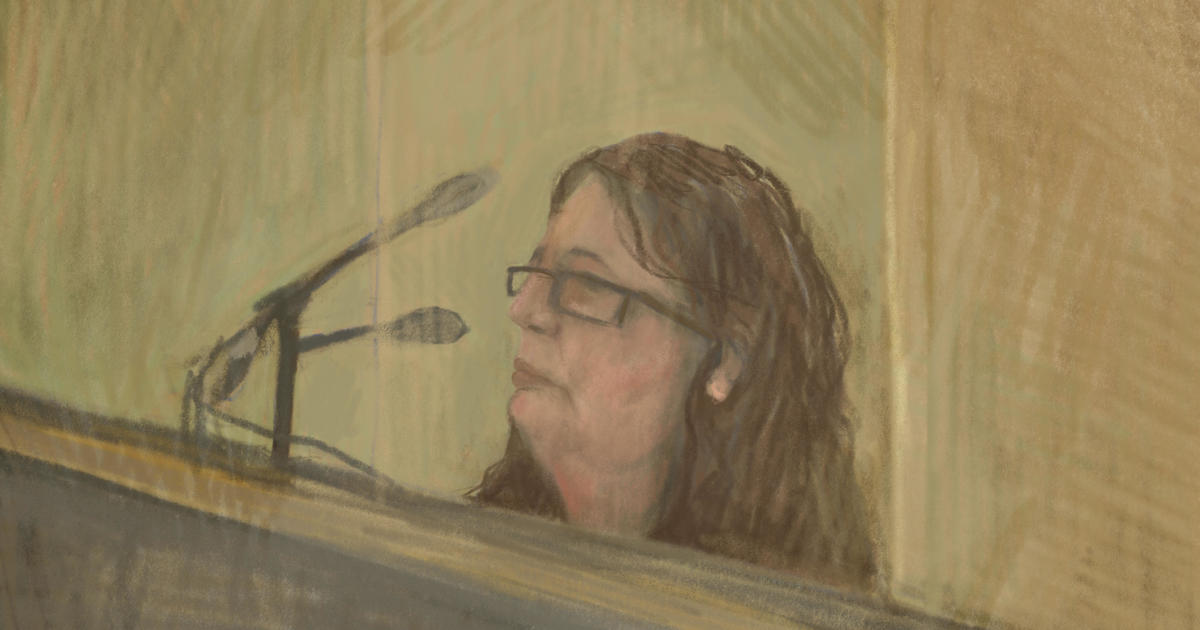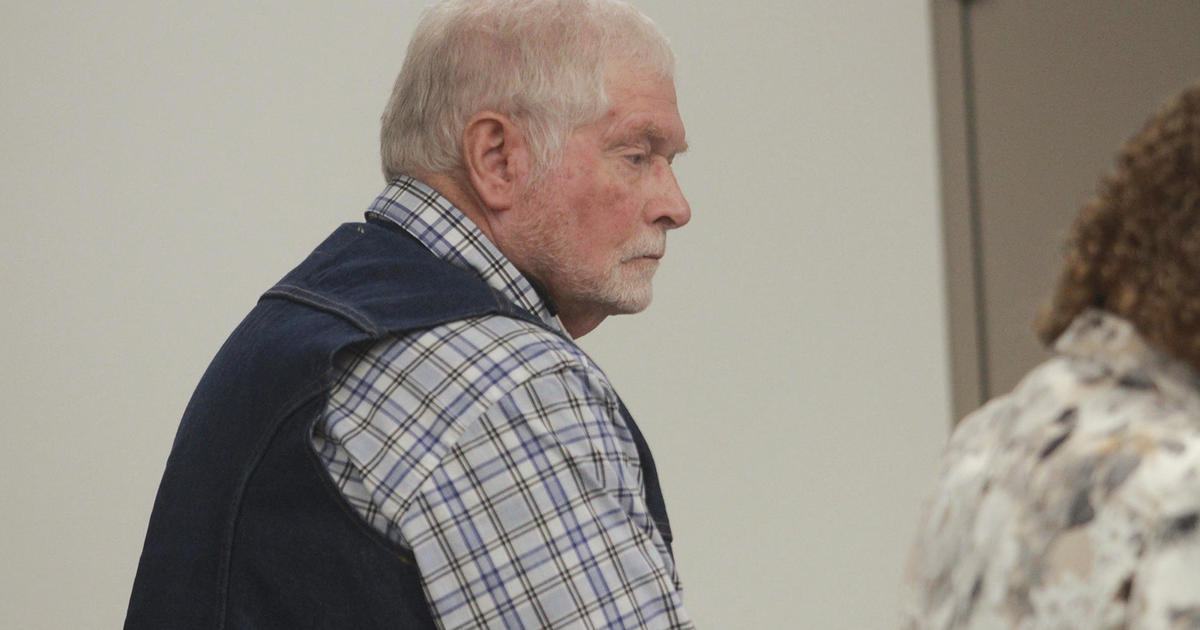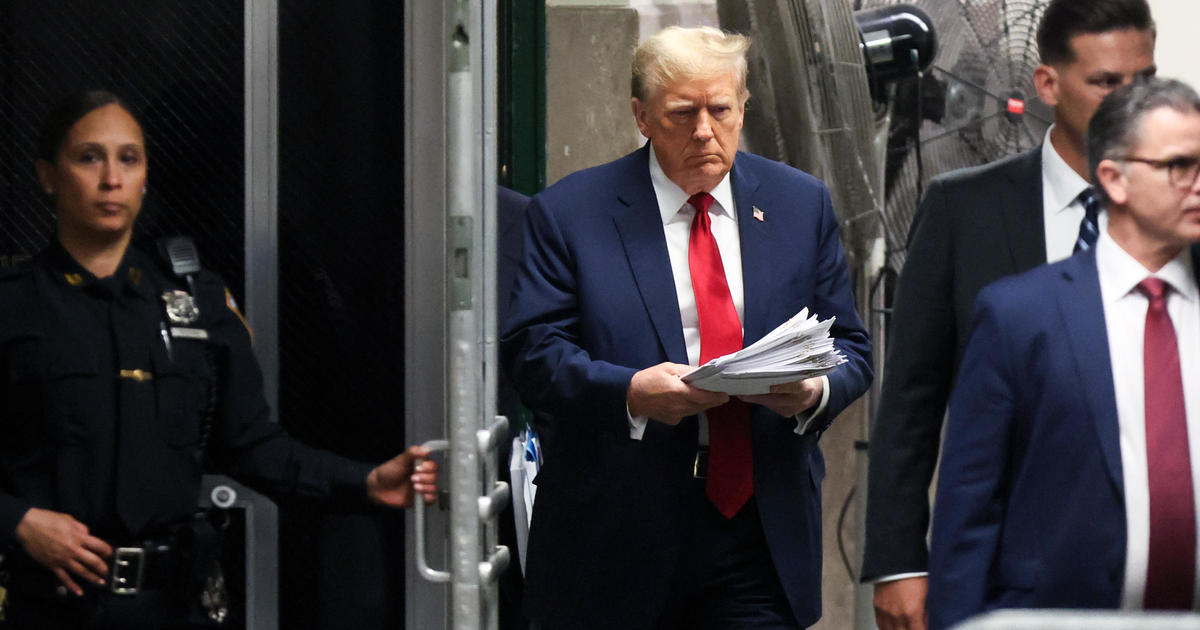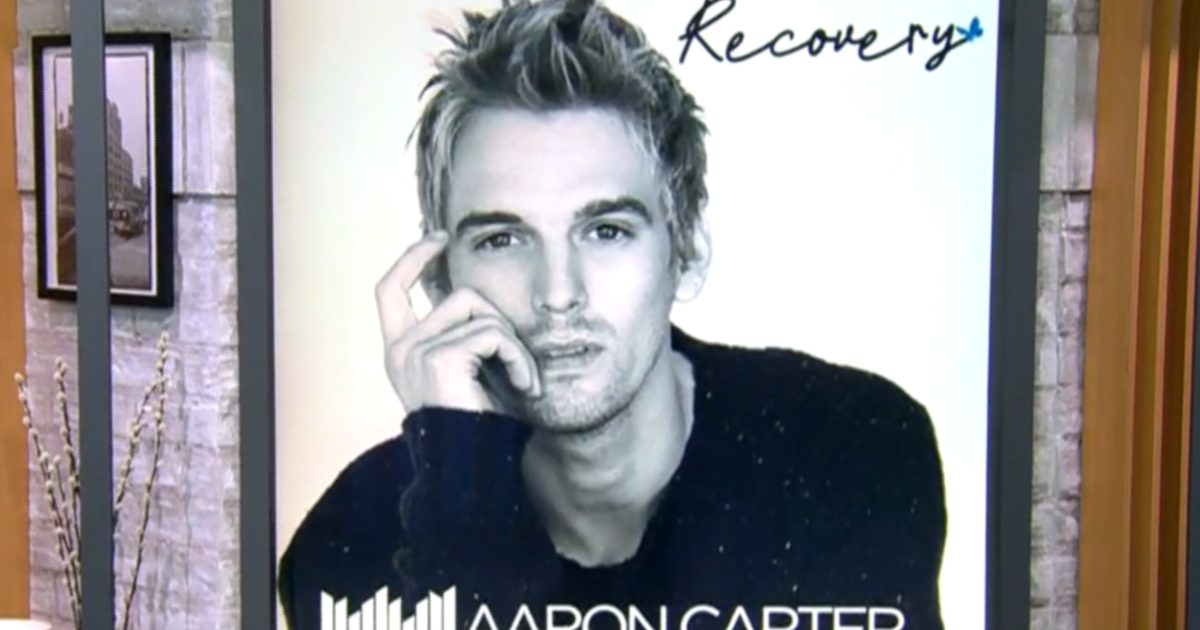New Zealand mosque shooting suspect ordered to undergo mental health checks
- Australian Brenton Harrison Tarrant is charged with 50 counts of murder for his alleged attacks on two New Zealand mosques.
- The judge has ordered Tarrant to undergo mental health exams, which is standard in such cases.
- Family members and survivors of the mosque attacks were at the court on Friday.
- The suspect appeared via video link and showed no emotion during the proceedings.
Christchurch, New Zealand -- A New Zealand judge on Friday ordered that the man accused of killing 50 people at two Christchurch mosques undergo two mental health assessments to determine if he's fit to stand trial. High Court judge Cameron Mander made the order during a hearing in which 28-year-old Australian Brenton Harrison Tarrant appeared via video link from a small room at the maximum security Paremoremo prison in Auckland.
Mander said nothing should be read into his order for the mental health assessments, as it was a normal step in such a case. Lawyers said it could take two or three months to complete.
The judge said Tarrant was charged with 50 counts of murder and 39 counts of attempted murder. Police initially filed a single, representative murder charge before filing the additional charges this week.
Tarrant was wearing handcuffs and a gray-colored sweater when he appeared on a large screen inside the Christchurch courtroom, which was packed with family members and victims of the shooting, some in wheelchairs and hospital gowns and still recovering from gunshot wounds.
Tarrant had stubble and close-cropped hair. He showed no emotion during the hearing. At times he looked around the room or cocked his head, seemingly to better hear what was being said. The judge explained that from his end, Tarrant could see the judge and lawyers but not those in the public gallery.
Tarrant spoke only once to confirm to the judge he was seated, although his voice didn't come through because the sound was muted. It wasn't immediately clear if his link had been deliberately or inadvertently muted.
The mosque attacks
In the March 15 attacks, 42 people were killed at the Al Noor mosque, seven were killed at the Linwood mosque and one more person died later.
Tarrant, an apparent white supremacist, allegedly used a helmet-mounted camera to broadcast live on Facebook as he shot worshippers in the mosques. Facebook livestreamed the massacre for 17 minutes without interruption before reacting.
The social media giant said it removed 1.5 million videos of the shootings during the first 24 hours afterward. The government has argued that social media companies need to do more to exclude such content, and Australia has rushed through a controversial new law which could see it jail social media company executives over "abhorrent violence" streamed on their platforms.
The day after the attacks, Tarrant dismissed an appointed lawyer, saying he wanted to represent himself. But he has now hired two Auckland lawyers to represent him, Shane Tait and Jonathan Hudson. The next court hearing was scheduled for June 14, and the mental health findings would determine whether he is required to enter a plea then.
Victims react at court
The courtroom was filled with more than two dozen reporters and about 60 members of the public. A court registrar greeted people in Arabic and English as the hearing got underway. Some of those watching got emotional and wept.
Outside the courtroom, Yama Nabi, whose father died in the attacks, said he felt helpless watching.
"We just have to sit in the court and listen," Nabi said. "What can we do? We can't do nothing. Just leave it to the justice of New Zealand and the prime minister."
Tofazzal Alam, 25, said he was worshipping at the Linwood mosque when the gunman attacked. He felt it was important to attend the hearing because so many of his friends were killed.
Alam said he felt upset seeing Tarrant.
"It seems he don't care what has been done. He has no emotion. He looks all right," Alam said. "I feel sorry. Sorry for myself. Sorry for my friends who have been killed. And for him."
